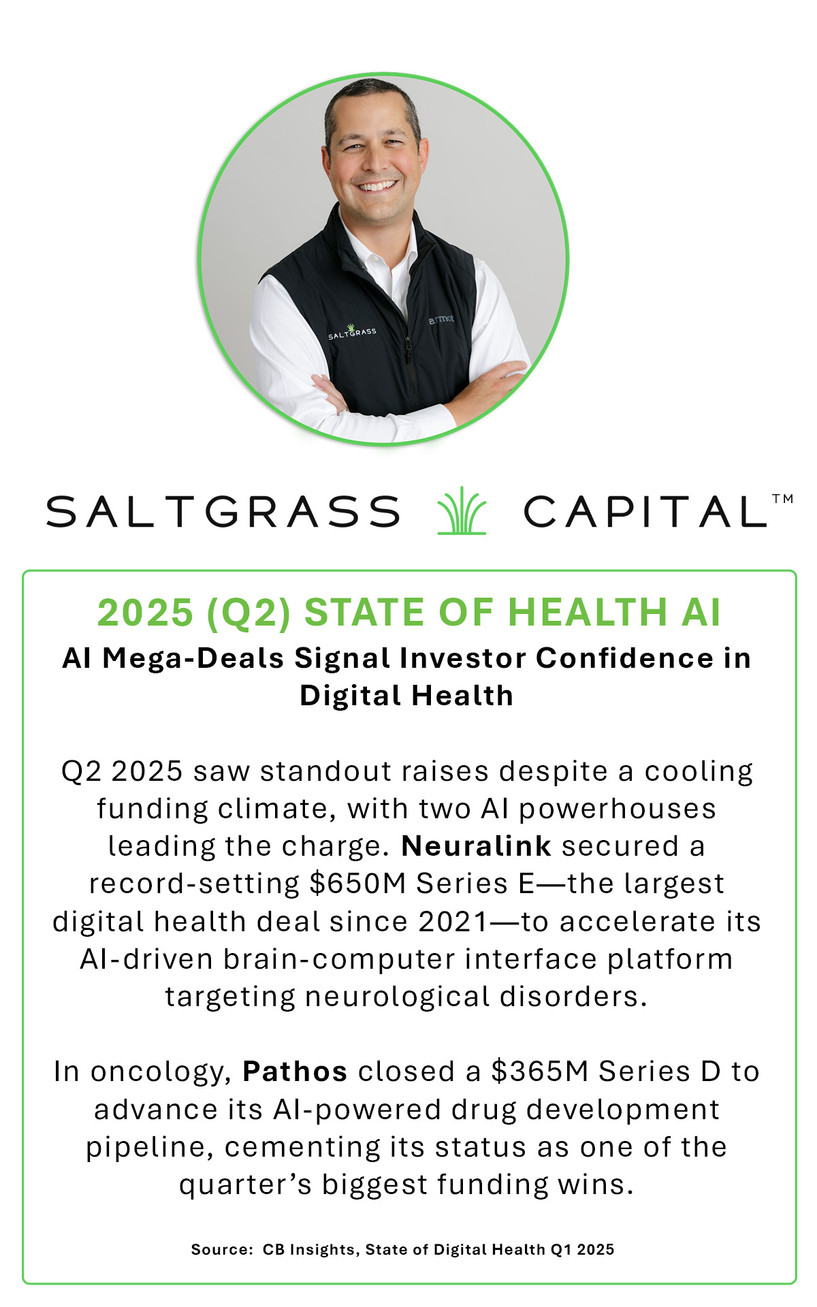AI’s Unstoppable Momentum in Digital Health: Q2 2025 Insights
- Robert Goodman
- Aug 13, 2025
- 2 min read
Updated: Oct 13, 2025
Artificial Intelligence (AI) has moved from the periphery of digital health to its driving force. The latest Q2 2025 data paints a vivid picture — AI isn’t just participating in digital health’s evolution; it’s commanding the stage.
AI’s Funding Dominance
In Q2 2025, AI startups captured a remarkable 69% of all digital health funding, up from 60% in Q1. This growth underscores a clear investor appetite for AI-driven innovation, particularly solutions that promise measurable operational impact and scalable outcomes. AI’s share of deal volume also held strong at 41%, signaling sustained confidence across stages and sectors.
Big Bets on Clinical Documentation
One of the standout categories was Clinical Documentation Solutions, which raised $639M across just five deals. Market leaders such as Abridge ($300M), Commure ($200M), and Nabla ($70M) not only secured significant funding but also earned high Mosaic scores, reflecting strong market positioning and investor conviction. These solutions are reshaping how clinicians capture, process, and utilize patient data — enabling faster documentation, reduced administrative burden, and more time for patient care.
Mega-Deals and Market Signals
The quarter’s largest raise came from Neuralink, securing $650M in a Series E round to advance its AI-powered medical brain–computer interface platform. This single raise marks the biggest digital health deal since 2021, underscoring that investors are willing to back moonshot technologies with transformative potential.
While overall deal counts hit a five-year low, the capital deployed per deal rose sharply. Investors are favoring fewer, larger, high-conviction investments, with a bias toward companies demonstrating maturity, scalability, and proven value.
IPO Resurgence
After a quiet stretch, Q2 saw the return of high-profile digital health IPOs:
Hinge Health, debuting at a $2.6B valuation
Omada Health, valued at $1.1B
These listings signal that public markets still have an appetite for digital health plays with sustainable business models and growth potential.
Why This Matters
Investor Confidence: The concentration of funding in AI indicates that the market sees AI not just as an enhancement but as an essential engine for healthcare transformation.
Workflow Transformation: Clinical AI tools are rapidly moving from pilots to enterprise-scale deployments, fundamentally altering care delivery and provider efficiency.
Market Maturity: IPOs and large late-stage rounds show a shift from speculative bets to commercially viable, scaled solutions.
Looking Ahead
The trajectory is clear — AI will continue to lead digital health’s next phase, expanding beyond documentation into diagnostics, personalized medicine, and real-time patient monitoring. The challenge for innovators will be proving clinical efficacy, integrating seamlessly into workflows, and navigating evolving regulatory landscapes.
Source: CB Insights Q2 2025 State of Digital Health









